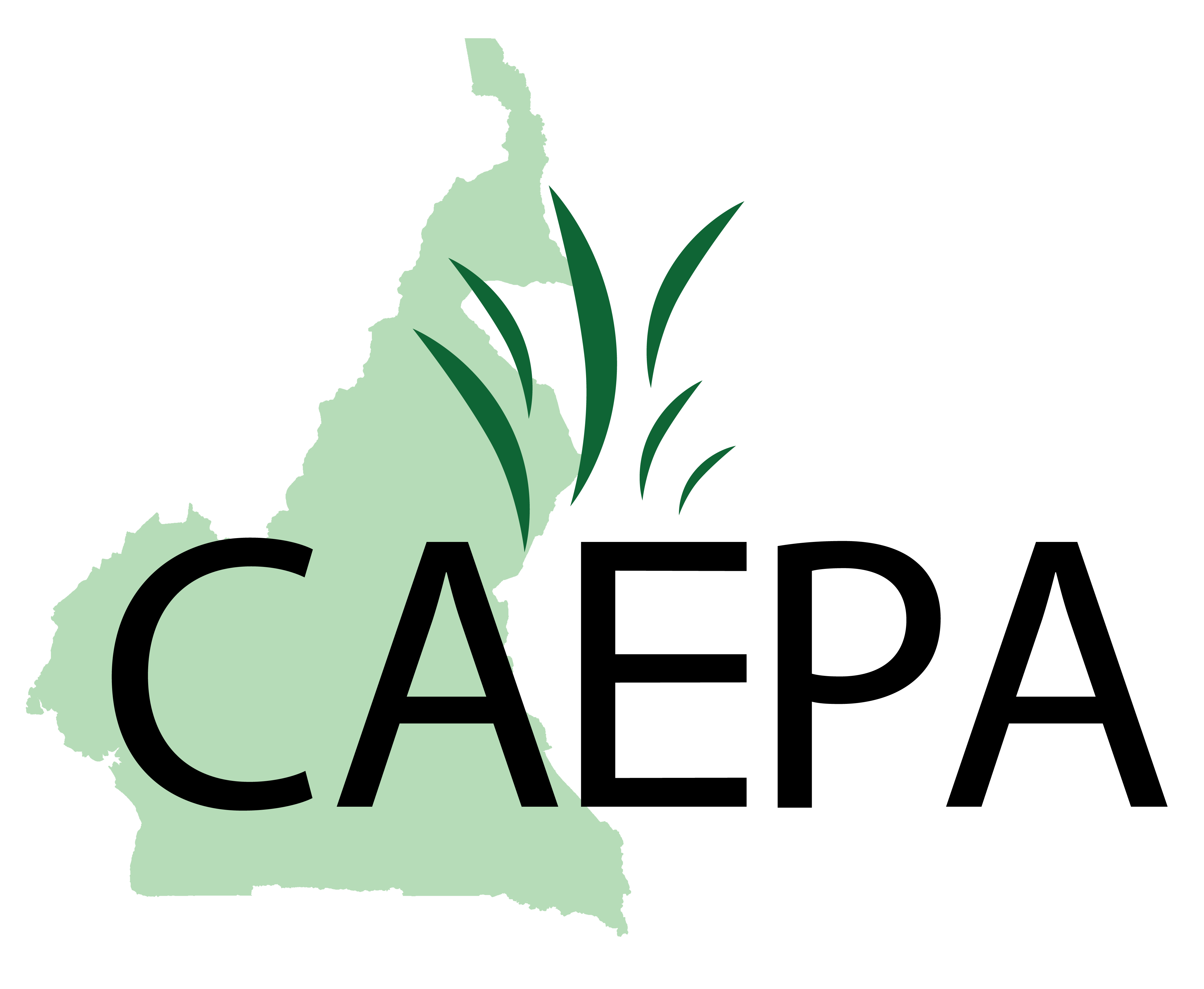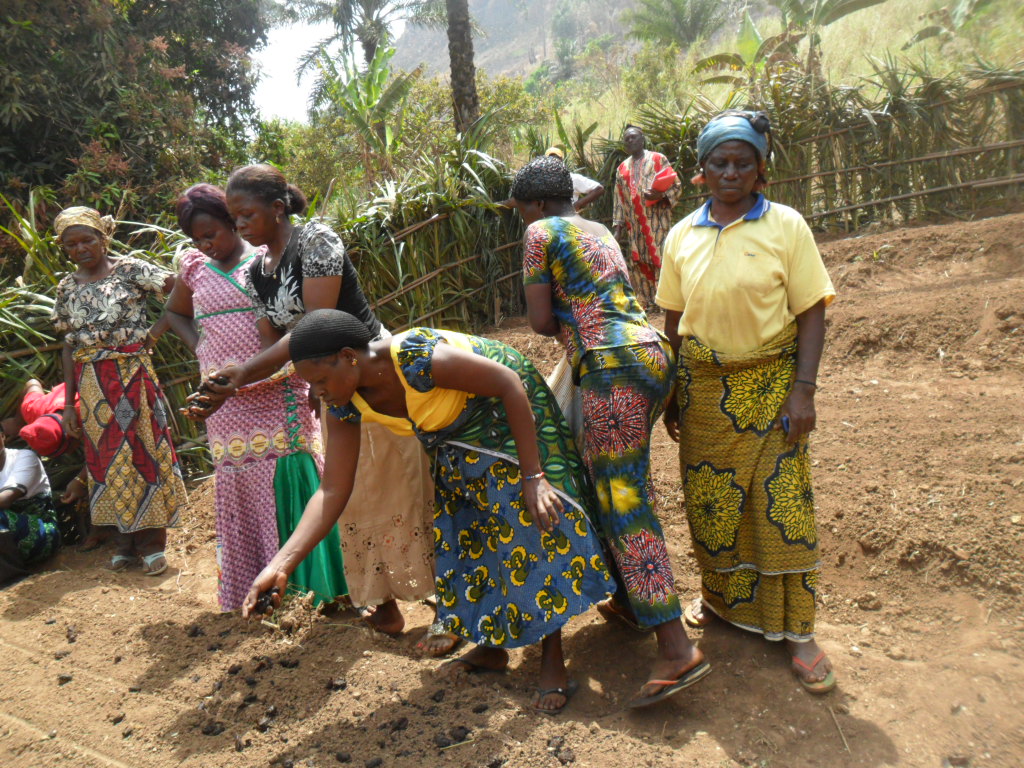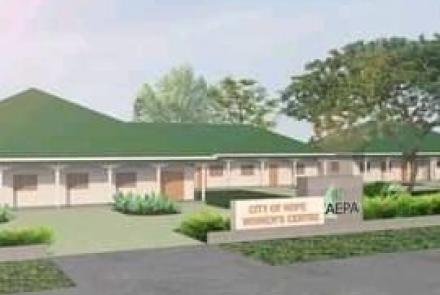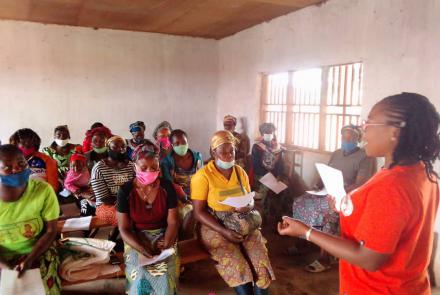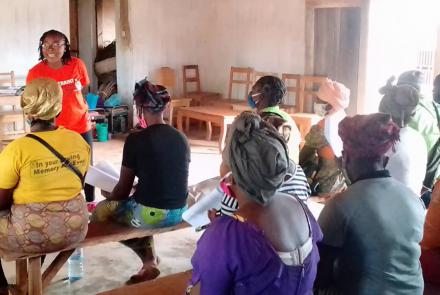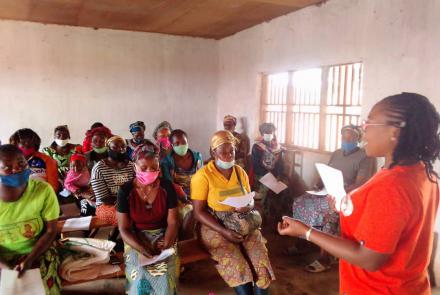Community Outreach: Reforestation of the Tubah Upland Forest
The Tubah Upland Forest is a 40 square kilometer area that is part of the Bamenda Highlands in North-West Cameroon. Due to population growth, intensive cultivation, unsustainable farming practices and an overall lack of stewardship, the Upland Forest has been severely exploited. The resulting deforestation is a danger to the survival of its many tree species and the Nigerian-Cameroon chimpanzees that populate the region. The Upland Forest ecosystem remains fragile and will contribute to local area conflict unless drastic steps to improve conservation are implemented. In order to address these issues, CAEPA aimed to improve the conservation status of threatened trees that serve as food and habitat for chimpanzees, as well as raise awareness and build capacity among community members and students about the threats to the Upland Forest.
In July 2013, CAEPA developed a project to facilitate tree identification, reforestation techniques and nursery establishment in the Tubah Upland Forest. This project aimed to increase the capacity of local community members to conserve and restore threatened tree species vital for chimpanzee food and habitation. To do so, CAEPA selected farmers, students, grazers and hunters for their involvement in the exploitation of the forest and held a four-day workshop for 52 participants on tree identification, nursery establishment, and reforestation techniques. The workshop sensitized the participants on land tenure, forestry and wildlife laws in Cameroon, tree identification, seedbed and plotting nursery creation, afforestation, direct planting and reforestation methods. CAEPA also created a permanent nursery with 10,000 plots and 6,000 trees of five different species. Additionally, 77 community members planted 5,000 trees in degraded patches linking the Fitsen and Kubu main patches.
This community outreach project brought together key stakeholders to discuss how to reduce pressure on the chimpanzee habitat in Tubah. Through these discussions, participants raised important issues that must be addressed to support reforestation. Some of these requests included creating maps of the Upland Forest and its buffer zones to help forest users know their limits, enhancing law enforcement presence, continuing to raise awareness for Cameroonian wildlife and pastoral laws and increased training on improved farming techniques. CAEPA is well-positioned to address these community needs and plans to continue providing effective training and capacity-building workshops to strengthen the preservation of the Tubah Upland Forest and its endangered chimpanzee population.
